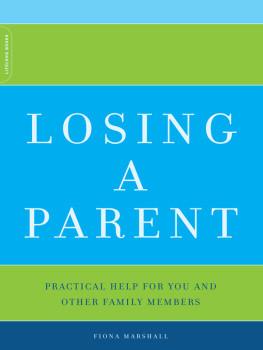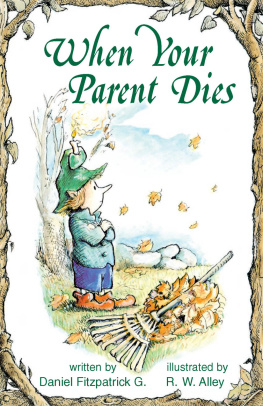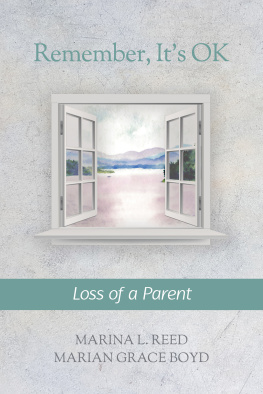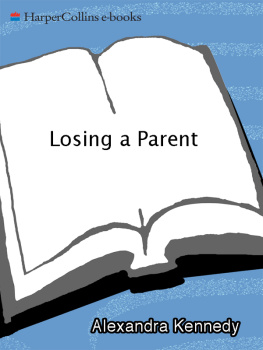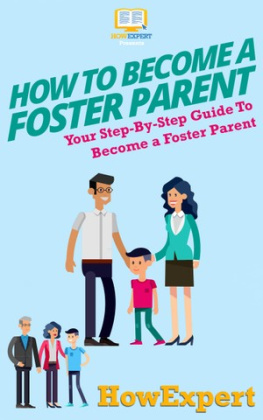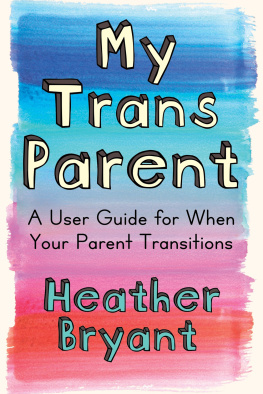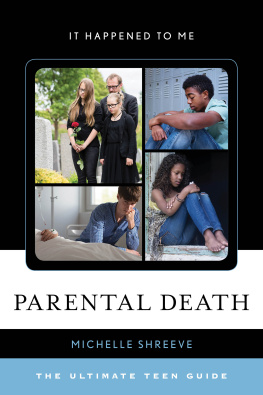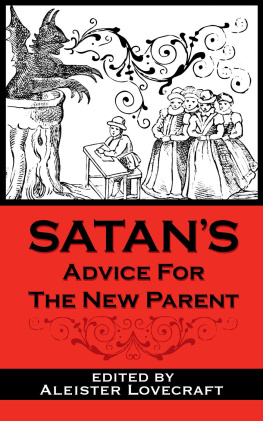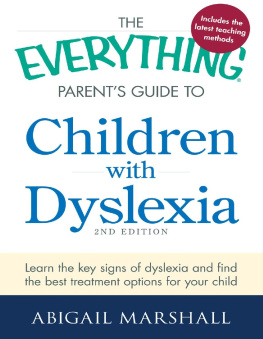First and foremost, my thanks to Peter Cheevers, who made many valuable contributions to this book and who was unstinting in his support.
My thanks also to the people who shared their experiences and time with me, including the Reverend Ian Ainsworth-Smith, Alan Davidson, Mick Smith, Christopher Wood, Hazel Sternberg, Dr. Richard Lamerton, Dr. Emanuel Lewis, Margaret Murray, Henrietta Regan and John Petherbridge.
Thanks also to the Lisa Sainsbury Foundation and the Center for Policy on Aging for generous access to their written materials.
Introduction
WE TEND TO BELIEVE THAT our mother and father will never die. Even if a long illness gives us time to prepare ourselves, we can never be completely ready for their death and its aftermath. No matter what our age, the death of a parent is devastating; nothing leaves us feeling so abandoned. It means saying goodbye to the people who gave us life. Not only do we lose a loved one, we also face a severe identity crisis because that person was so much a part of ourselves and our past.
Our mothers or fathers death is often our first close encounter with death and means coming to terms with our own mortality in a very real sense. Life as we have known it stops and we are left in the deep isolation of grief. We must work through this griefthere are no shortcuts to emotional health.
This grief work, which can take years, covers many aspects of our lives. We have to consider our parents life in a totally new lightto accept him or her as vulnerable, to assimilate this loss of a part of ourselves and to formulate some concept of death.
The need to find meaning in what has happened can transform pain into valuable insights with which to face the rest of our lives. This book explains how to find this meaning, how to see, eventually, your mothers or fathers death as the beginning of a new strength and maturity.
The loss of a mother or father is one of societys invisible areasor, at least, semivisible ones. Like disabled people and struggling young mothers, dying parents have always been around, but they blend into the background, unless you happen to be one of them or closely connected with one of them. The general attitude seems to be that, although it is agonizing, the loss of a parent is more or less expected.
Condolences may skim over the profound psychological effects this event can have. After all, youre an adult, arent you? This indifferent attitude can accentuate the isolation that is a normal feature of bereavement.
Thanks to media coverage of disasters and post-traumatic stress, the public is more aware today of the damage unresolved grief can cause. More and more people are joining grief support groups; many come to discuss the death of their mother or father. Others come to discuss the loss of a partner and discover they really need to talk about the unabsorbed earlier loss of a parent.
Could it be a comment on our culture, which puts so much emphasis on couples, that so many bereavement studies are done on the widowed? In comparison, studies rarely address the death of a parent and its effects on the adult child. Add to this our societys taboo on death and you realize that a person who loses a father or mother may be very lonely indeed.
Letting go takes time, and its possible that you may never completely let go.
I hope this book will go some way toward helping if not curing that loneliness. Those who read it will know at least that it is a shared loneliness. Having been through the event myself, I appreciate not only this isolation, but the need of a bereaved person to make sense of what has happened. Grieving can be a long process, especially if you need to formulate some personal philosophy of death incorporating both parents, dead or alive, into the framework of a reasonably happy and mature life.
Generally, the younger you are, the harder you will take the death of a parent. But many factors affect grieving: If you are deeply involved in other life events, such as getting married or having a baby, mourning may be delayed or complicated. If you are older and used to having your parents around, perhaps even taking care of them, their loss can be a blow that turns your life upside down. It is by no means uncommon for people age sixty or older to feel like orphans, alone in the world.
Nevertheless, the death of your mother or father is part of the natural sequence of events. Parents do usually die before their children. In some ways, their death also frees their adult children to take on responsibilities and roles they might not have accepted before the death. The bereaved gain mentally, culturally and perhaps materially from the loss. Although frightening, the challenge of dealing with loss can be liberating.
While the primary emphasis of this book is on growth and recovery, remember that meaning cannot be forced or rushed. Death cannot always be mentally cleaned up with all the coping strategies that come to us from religion and other sources. Letting go of what has happened is a vital part of recovery, with its pain, its raggedness and its imperfection.
The ambulance that didnt come in time, the doctor who was casual, the priest who was less than comforting-these may always hurt, but you cant hold on to them if you ever want to feel whole again. Letting go takes time, and you may never completely let go. No one will ever be at ease with the way Dad died, or see it as neatly fitting in with the universes master plan.

